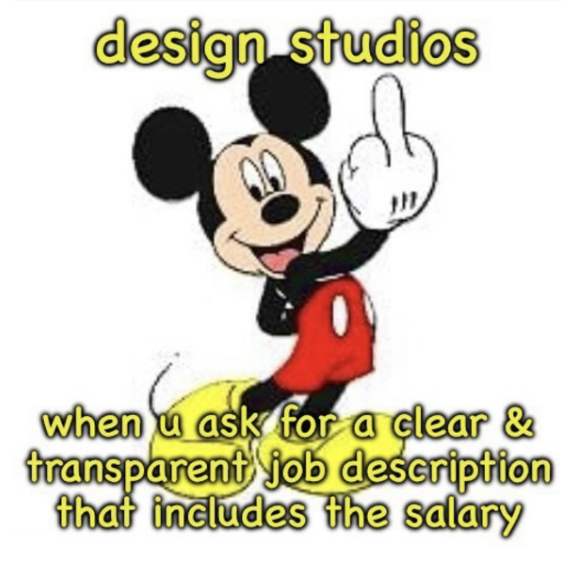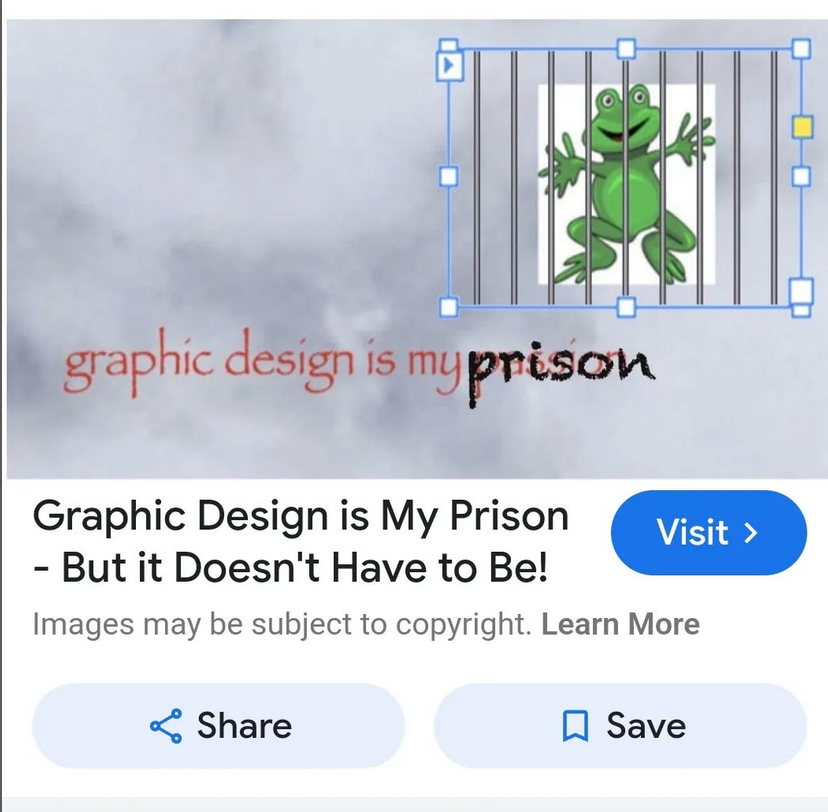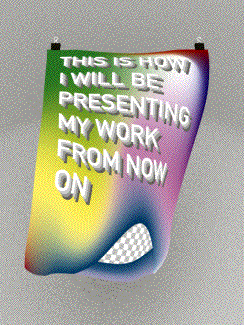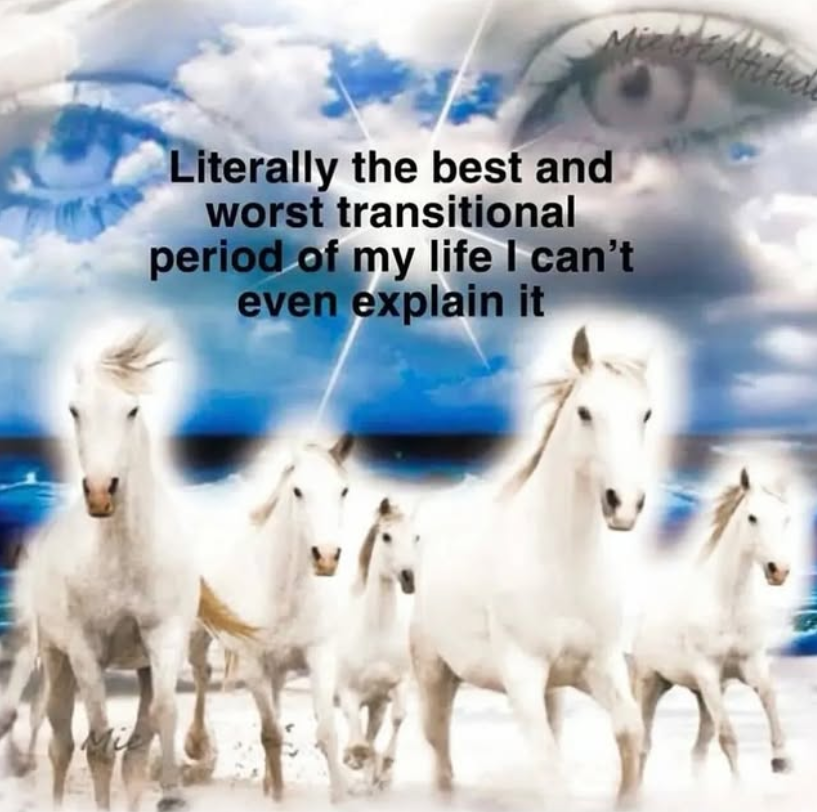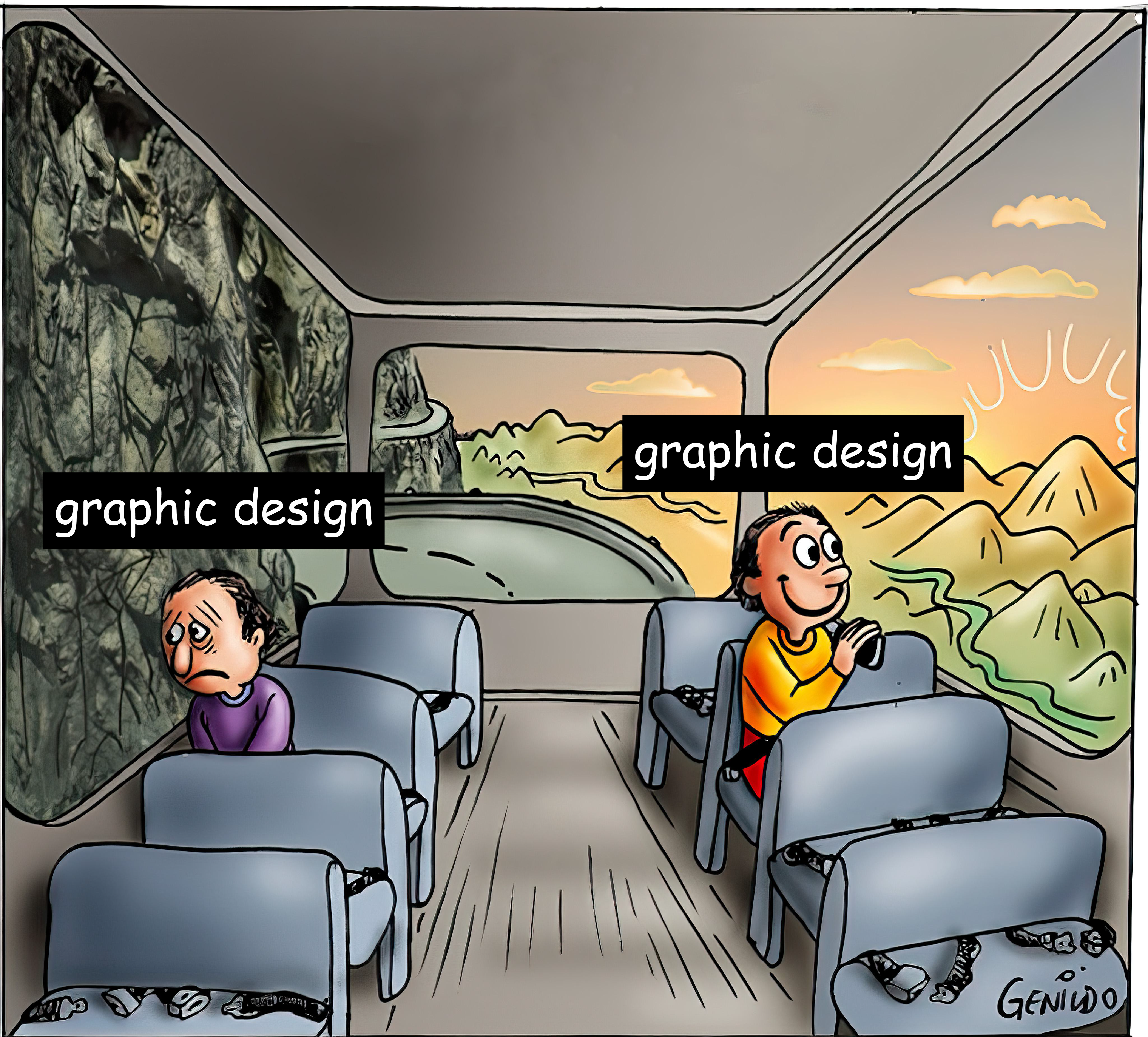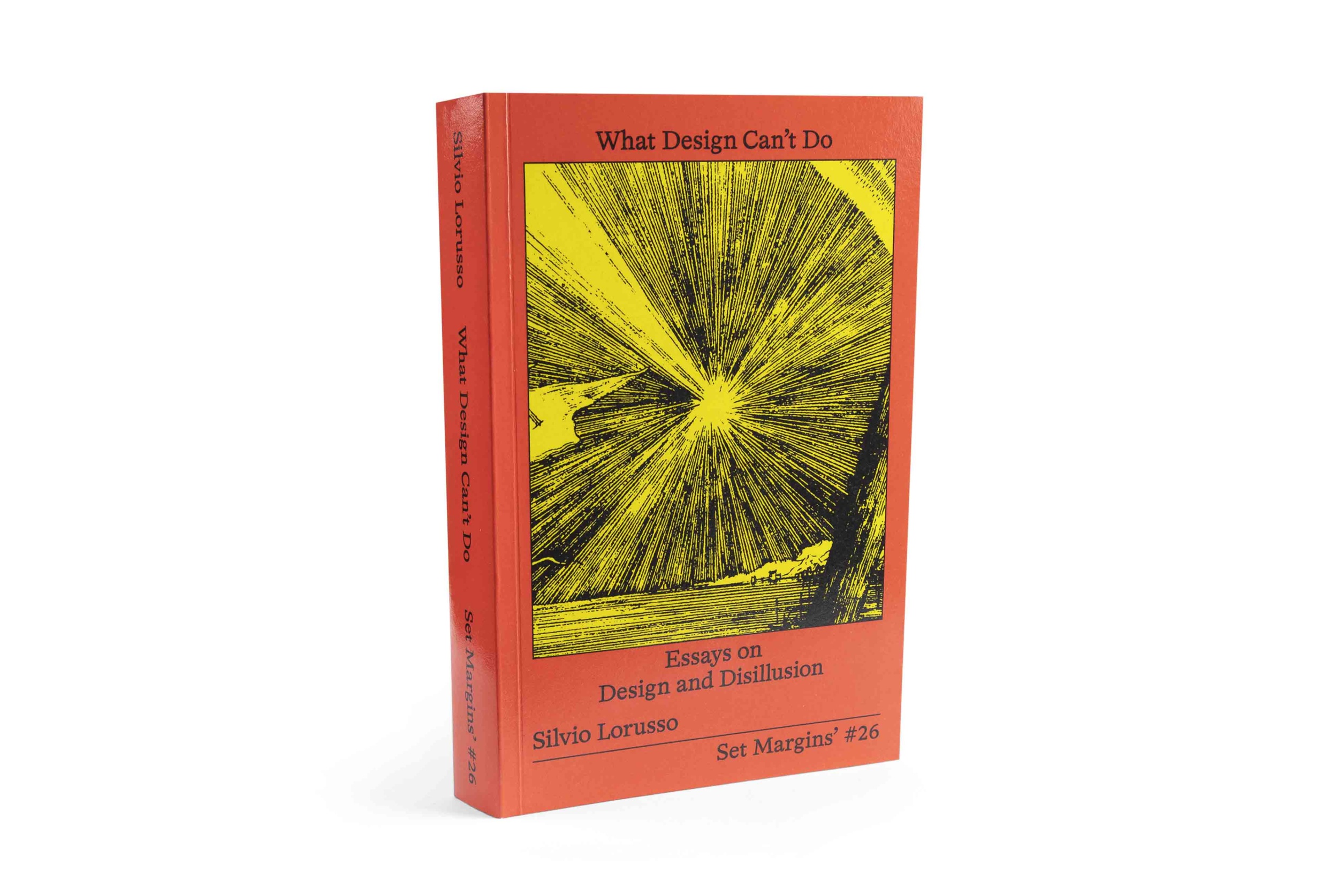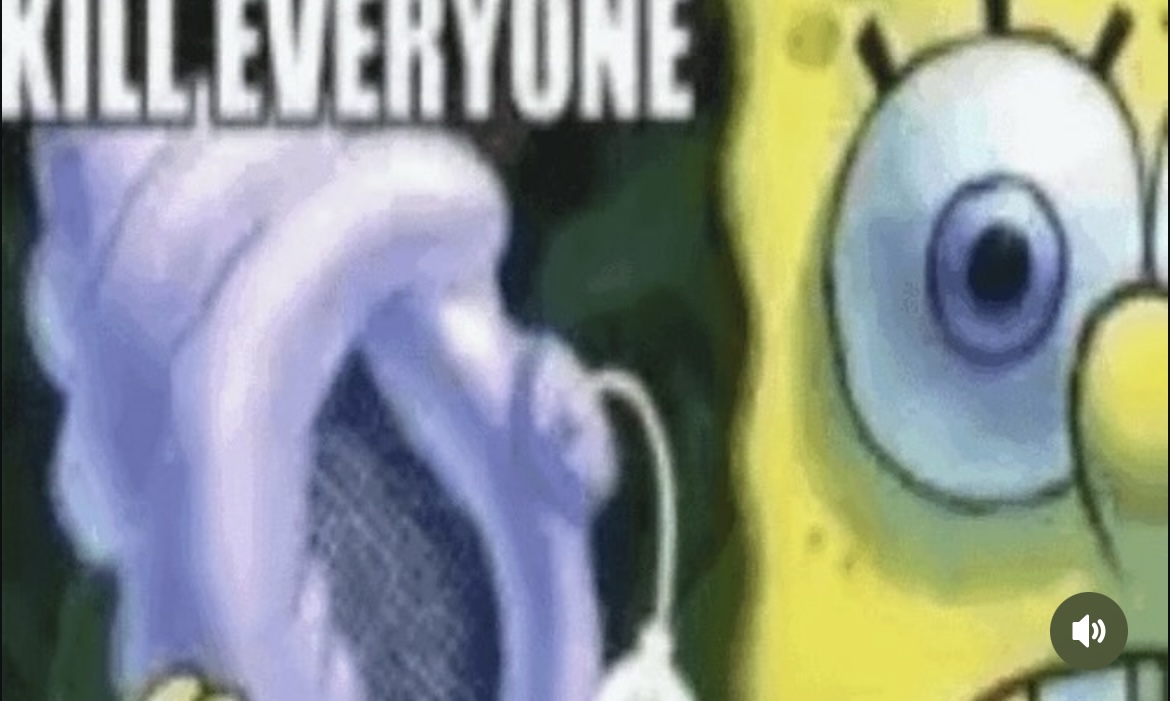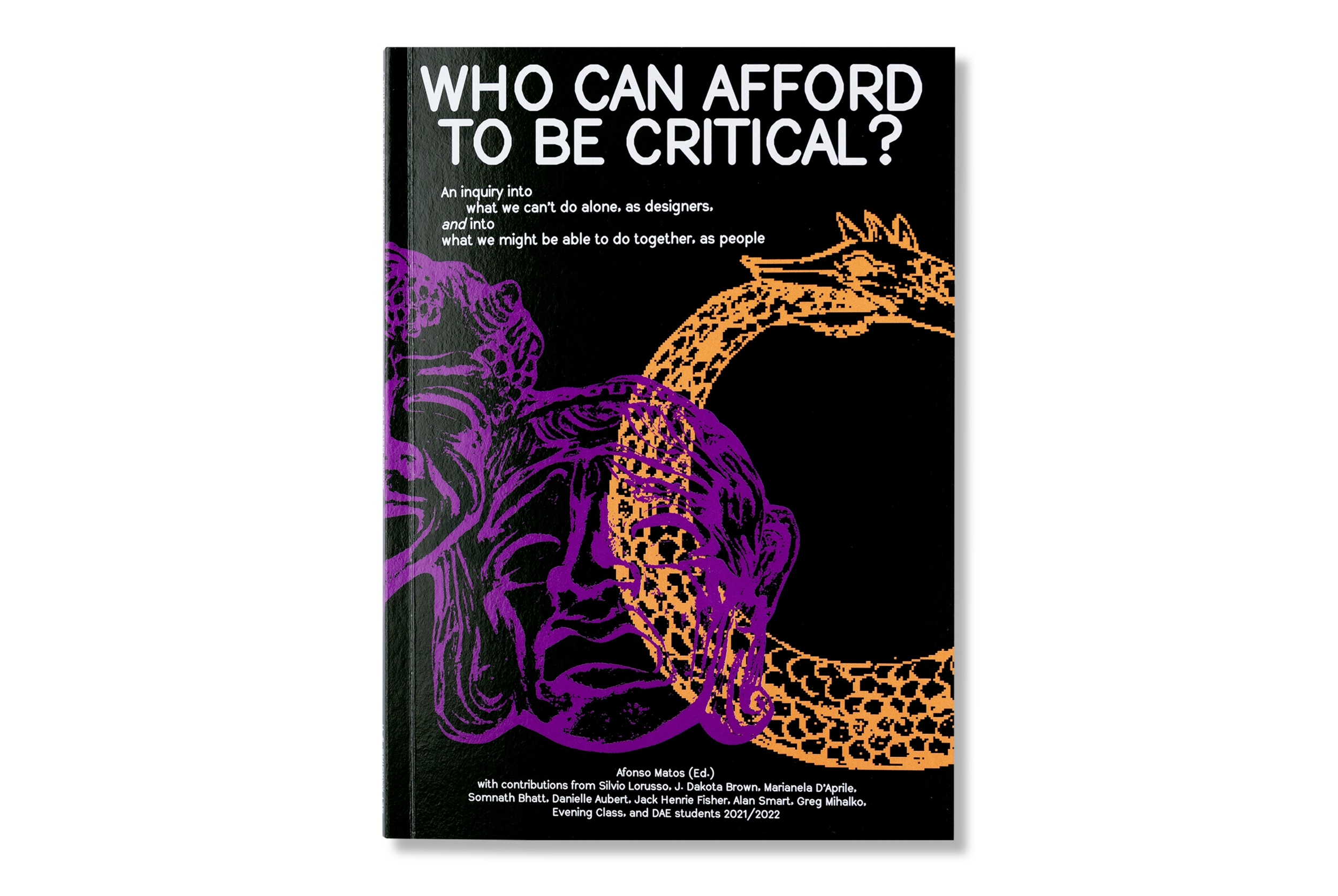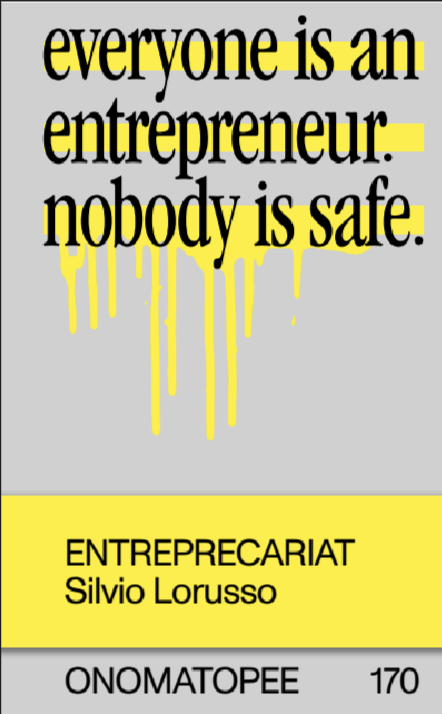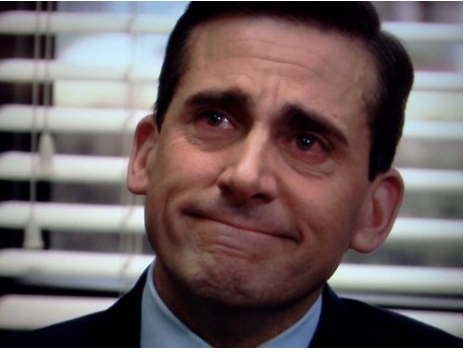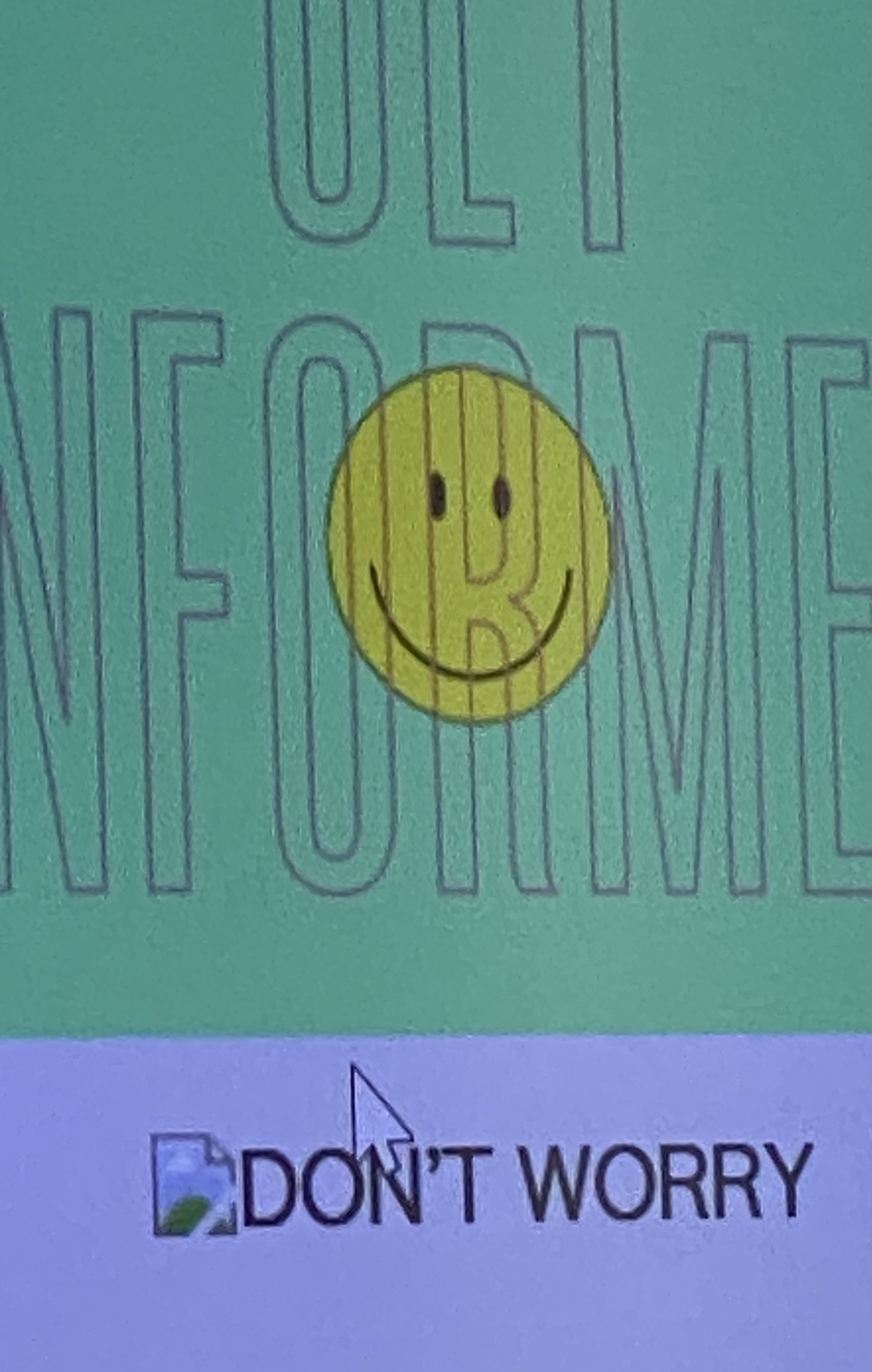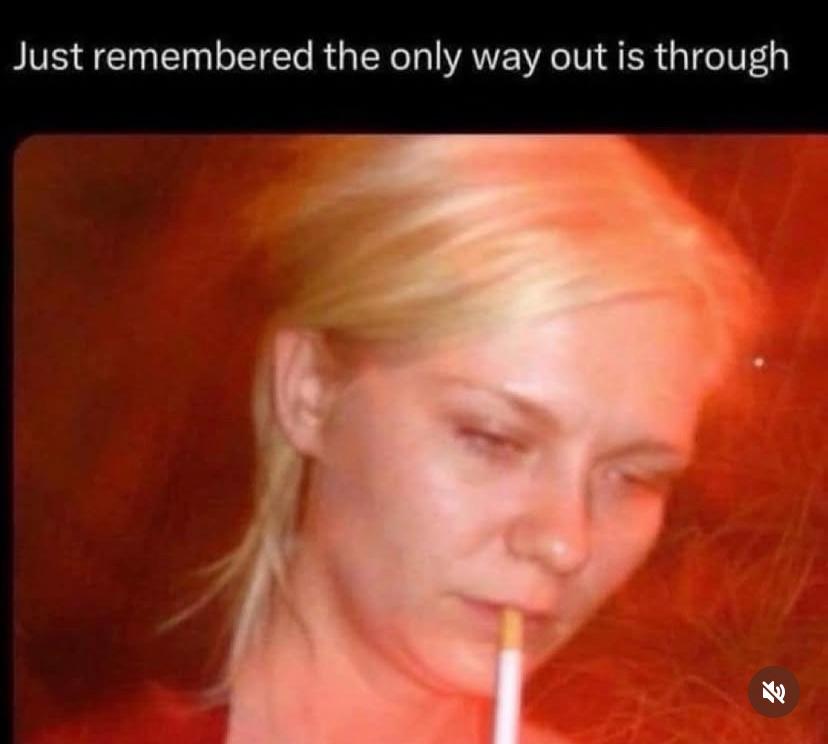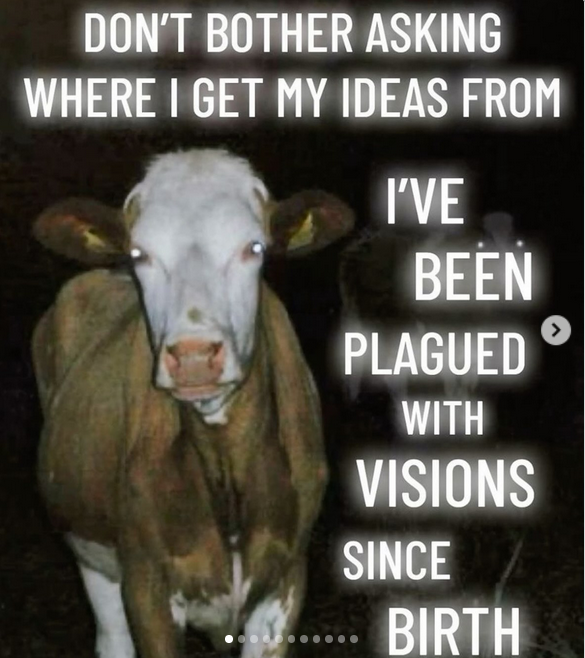Is it just me, or does design today feel like a bit of a mixed bag?
I have been on the path of education and graphic design for some time now. I started learning about graphic design in high school and suddenly stopped when I got to undergrad. I dropped out and as result I returned to undergrad about 14 years after I initially started college. I got my BFA and I am now working on my MFA. Now that I am so close to the end/start I can't help but feel a little hopeless. This summer in particular has been brutal. I had all these hopes and dreams of what it might look like. Like many trying to break into the industry, it has been a struggle. I think all we can really do is continue to make and create the things we love, eventually we will all find our home in design.
Writing this text straight after looking for internships and full-time jobs while realizing there is exactly zero option for job offerings that would really give me joy in life feels disappointing. But I think that's pretty much how it is when you are going to drop out of the tiny creative academic bubble straight into reality. [1]
I am at a point of my studies where I don't know what I do, I don't know what I want and I don't even know who I am anymore. All I have is a bachelor's tittle and an inbox full of job rejections.
[2]
Before you click on the blue plus button to participate in our conversation, I can assure you it is not a one-time story.
According to various studies, the graphic design field is considered to be one of the most disappointing careers, especially for those who have an educational background in it.
The graphic design field is often labeled one of the most disappointing careers—especially for those with an academic background in it. That line cuts deeper for me now, as I pursue my MFA. Every day feels like a quiet tug of war between the internal doubt that questions this path and the external effort to keep pushing forward. I’m aware that, at the end of the day, we’re just graphic designers. There’s an unmistakable air of pretension in what we do, a sense of self-importance, maybe a way of justifying our place in a hyper-competitive world. But perhaps the struggle isn’t a sign that I’ve chosen wrong. Maybe it simply means I care enough to want it to matter.
On one hand, it’s a field that attracted us because we considered ourselves creative individuals and design seemed like a perfect solution to combine passion and work.
I've faced discouragement many times in both my studies and my pursuit of a career in graphic design. Society, capitalism, and even people close to me have shown doubt in me and many of my creative peers. I find myself swinging between delusion (holding on to dreams) and disillusionment (when the weight of reality sets in). The truth is, success often feels elusive, especially for those of us who think outside the box or create in ways that are not profitable. But our passion is what keeps us going and HAS to keep us going.
It's true. It can be very rewarding. But in addition to the challenge of finding jobs ... there is also the fact that many agencies have an intense workload and a not so balanced work / life.
Later on, we learned design is often, especially in academic conditions, seen as a tool for changing the world, and we were eager to work for a good cause.
Back at university, we were taught that working in agencies or companies wasn’t really the goal — as designers, we should use our creativity for non-commercial, culturally significant projects. But in reality, that doesn’t work for most of us. What we were taught rarely holds up once you’re out in the real world.
These days, I work for a company. Before that, I spent time in agencies, worked freelance, and held jobs at different companies. And honestly, because of that, I’m often not fully accepted — some see me as a “lesser” designer. Especially former professors or classmates who once expected me to do big things for culture and thought I’d follow that path.
I still have a few friends from those days — people in Leipzig and Berlin — who are doing exactly that kind of cultural work. But every time we talk, it’s clear how tough it is: unstable jobs, constant financial stress, and a lot of uncertainty. The truth is, they can’t really make a living from it. But they don’t talk about that openly — especially not with our old professors.
But on the other hand, there’s this growing sense of frustration as the reality, in most cases, doesn't meet our expectations.
We realize how different things are in the real world compared to what we were taught in school.
[3]
Yes! As Alfonso Matos once said: »I tried to subvert capitalism with my design practice. Now I’m looking for a job.«
In design school, you’re pushed to think critically, be creative, deeply question your work, and solve problems in ways that make a difference.
I am being torn apart internally for having to choose between a project that solves a world problem (not really ofmg we are so full of ourselves), a project that looks cool and is fun to make, a project that consumes your soul for money, or a project that is personal and you enjoy exploring it but no one will ever see (if you don't post it on social media). I keep being told that my passion projects WILL bring me clients with the same vision, but... i feel so lost in the waiting.
[4]
Students are told to challenge the status quo, think big about society, and use their skills for good to make an impact.
to be fair, I did not really care or know much about graphic design until I started studying it in Germany, just three years ago. to this day, a part of me still rejects it HARD because there is something about the european design academia that feels too clean, too plastic, curated, and, above all, too elitist. I feel like there's still a need for everything to make sense and to appeal to a certain kind of eye.
yes, we are encouraged by our professors and teachers to question the ways the _cis_tem works, and we're pushed to think and find a deeper, important meaning in our work, specially in the current political climate, but at the end of the day, to me, it still feels like a very individualist, lonely and isolating environment. even though we talk a lot about community in the university, it feels like at the end of the day, each one of us is still just trying to get to the top of the ladder, to shoot for success... greatness. to be one of the ones that _make it_. I can't blame people for finding fulfilment in ambition, but it just makes me feel like no matter how hard we try, capitalism still manages to bleed into our ways of developing our work and interacting with each other, no matter how much we discuss ways to work against it.
But then, you graduate and hit the reality of the design industry.
If design school only teaches us the reality of the design industry, would we still choose to study design? It's also a question to myself
You realize that what you learned in school isn’t always going to help you land your first job, and the creative freedom you imagined is often replaced by deadlines, budgets, mundane tasks, and clients who don’t always share your vision.
Being outside of academia for nearly a year now, I realised how much creative freedom one is given in university and that it is does not depict reality at all. Right now, I am deciding between going back to academia for a Master's degree (and potentially seeing myself in academia long-term; i.e. in a teaching position) or pursuing a full-time graphic design job that will not fulfill all my visions I had while studying (of challenging the status quo etc.)... I have been asking myself a lot too if studying design was a good decision because in the end it can put many of us in precarious positions (see the points mentioned under Entreprecariat).
Lately, I keep circling around this question of what it really costs to stay in design, not just financially, but emotionally.
What I keep coming back to is that space between frustration and sorrow. Once you start noticing what’s wrong, it’s hard to unsee it, you start searching for more of it, almost like a confirmation bias. And yeah, our position as graphic designers isn’t great. The work is underpaid, unstable, and incredibly undervalued. It’s often romanticized/ framed as a dream job or a passion, while simultaneously masking how exploitative and draining it can actually be. I share all the concerns around precarity.
But I also wonder what it does to us when we stay in that frustration too long. Does it narrow our vision? Are we digging ourselves deeper into the myth of the burned-out, depressed designer? Is there a light at the end of this tunnel, or are we too exhausted to even look for it? [5]
As an educator, I often think about how best to prepare my students for this reality and change from the student experience.
Sadly, what we learn in school is ›only‹ the design itself but nothing about issue an invoice or doing your taxes as an independent designer.
This is only one reason why this phenomenon happens.
Silvio Lorusso describes it in his far-reaching book, What Design Can’t Do: Essays on Design and Disillusion.
[6]
This book quickly became beloved by many students and seasoned professionals, revealing many aspects of what design today actually is.
Lorusso used memes as artifacts to support his theories, which allows to both giggle and question the entire design career—well, at least that’s what happened to me.
And speaking of memes, don’t hesitate to upload your own favorites.
[7]
[8]
How it feels to upload memes here: [9]
If this website isn't a success in terms of deep, meaningful discourse about our creative practice, at least it will contain some top-tier memes:) While explaining the meaning of selected memes, Lorusso talks about how the world of design can leave you feeling disillusioned.
I can really relate to this kind of feeling. Being at university and working on political and critical projects often leaves me with a sense of disillusionment, because I know how far removed they can be from reality. At the same time, I truly love the freedom that comes with being a student and having the chance to work on projects that genuinely matter to me. I think that’s also what creates such a big difference between studying and working. Still, I want to emphasize how beautiful the space of studying can be — a space where important and meaningful projects can take shape.
You come out of school with all these grand ideas, but the moment you enter the workforce, you’re faced with a reality where your ideals often don’t align with what’s being asked of you.
In the commercial world, creativity is often pushed aside to make way for what sells.
In most cases, it's all about profits, and that can feel pretty defeating.
Only a few have the good fortune to land a job fulfilling the idea of positively impacting the world.
In most cases, capitalism has taken hold of graphic design.
It’s important to see, that the problem is not god-given, not even capitalism is all to blame. But it does lie in the current structure of society – and technology. It has not always been like that, and not everywhere: In the nineties in Berlin, we had great freedom designing a lot of artistic and idealistic jobs. Life was so cheap there, that it didn’t matter that they were not always well paid. In Switzerland, still now, there is more money for design – and thus more time for designers, to pursue their asthetic and ethic goals. So, it can work even in capitalism. It’s a question how much we as society invest in what. Lack of scarcety is also a problem here: We as design schools are “producing” far too many designers, which drives their pay in the labor market down. The reason is a blind effort to increase academic degrees, regardless of demands.
Instead of being a tool for social change, designers become a middleman, pushing products and consumerism.
While it might not be one's first job, ideally a designer can land in a place where they are proud of the kind of work their studio / employer is doing
It’s hard not to feel like a cog in a machine when the work you’re doing is all about making more money.
And the more we talk about it, the clearer it becomes: most graphic design is ultimately made to sell. That’s the core function. It’s about making products/ideas more desirable, assigning emotional or symbolic value to things that might not have any on their own. Even in the so-called “cultural sector,” design usually follows market logic. A poster that doesn’t help sell tickets is seen as a failure, no matter how thoughtful it is. And as freelancers, we’re in the middle of it. We are expected to deliver meaning and most importantly aesthetics on cue. Sometimes it feels like even “critical” design is just another visual style. Like we’re wrapping capitalism in nicer packaging, calling it deconstructive/undisciplined and pretending it’s resistance…
Silvio Lorusso has provided many other great examples and stories of why cognitive dissonance is not a rare occurrence nowadays.
So I highly recommend getting to know his work, if you haven't already.
Another great book I came across while Browse the World Wide Web is Afonso Mato’s Who Can Afford to Be Critical?.
[10]
It dives into this tension, and by the way, Lorusso also contributed to it.
Designers today are often working in situations where they have to take on any project just to make ends meet.
It’s not that they don’t want to be critical or thoughtful about their work; it’s just that when you're barely scraping by, the luxury of being picky about your projects isn’t there.
Mato points out that, for a lot of designers, it feels like there’s no room to be critical anymore because the financial pressure and the need to conform to industry standards often override the chance to speak out or experiment.
I feel like a machine when I'm working just to make ends meet. There's an on/off switch for being critical and experimental in my head. Not sure if that's called "balance"?
Then there’s the whole issue of freelancing.
In his book Entreprecariat: Everyone Is an Entrepreneur.
[11]
Nobody Is Safe, (yet again) Lorusso discusses how the gig economy has made designers their own bosses, but not in a cool, empowering way.
Instead, many designers find themselves working multiple freelance gigs with no job security, no benefits, and constantly worrying about the next paycheck, which makes the practice of design quite precarious.
It can be a struggle to keep the creative spirit alive when you’re just trying to stay afloat.
The hustle to find work, manage your own business, and stay creatively inspired can leave you feeling drained and, sometimes, pretty disconnected from why you got into design in the first place…
This! And then add other dimensions like which class you come from (working-class or with an academic background), if your family can emotionally & financially support you when you need them, social network in the city you're residing in, if you have the country's citizenship, ...
I guess I was a bit delusional, when I finished my education, and thought that I would easily find a job, because everyone needs graphic design and branding right? It's been a bit of a shock to me, how tough it is to just get to a point where you can make a living, and aswell enjoy your job, which you chose because it was your passion. Sometimes I wish I would have kept it as a hobby, and found a job that would just keep my finances good and stable, so that I could enjoy my life without worrying so much?? Anyways, I still have this core feeling that I need to create something myself. Because also to be fair, this is the only way that I can really imagine that I will make a career that I love, that I'm proud of, and that can lead me to a life where I can pursue my passions, and enjoy working. Sorry, this text is really not as well thought and written as many of the other inputs, but sometimes it's good with just a stream of consciousness. kisses.
The gap between what you learn in school and what you actually do professionally is a huge source of disillusionment that I would love to shed light on.
I see many talented creatives start out with these high hopes but end up unsatisfied, which leads to a never-ending circle of finding new working conditions and projects.
I think something very important to add to this point is (and this might become a little too existential rather than design-related) the fact that a lot of us feel a lot of pressure to succeed... and this _success_ being directly connected to an exertion of the profession we studied. which is definitely logical and reasonable. and the best case scenario, maybe.
but a big chunk of the times it's just not how life works. at least not for everyone. feel like in Europe a lot of people succeed because they have a lot of resources, let these be money, contacts, or lots of energy and support to just _go for it!_
it's hard to stay on track and be ambitious and shoot for the stars when you're struggling financially, when you're far from home, and feel weirded out by everyone's default ways of being (aka cultural differences).
personally, I think it'd be fulfilling to find my place in an artistic niche (not necessarily, and frankly, improbably, in design) but as I do enjoy moving between several different fields, I have to make a constant effort not to build many expectations for my future, or pressure me into going all in into one direction, and just hope that I end up doing something(s) that makes me feel happy, no matter the turns or the stops that I have to make before getting there. there's so much disillusionment linked to the expectation of _finding a job in our field_, but the field is just so much bigger than we think...
[12]
I'm not an expert on disillusionment (like Lorusso), and I definitely don't know all the reasons why it happens, nor how to fix it.
[13]
It just happened to me, and I’m still figuring out how to cope with it.
I created this website so I could share my point of view and hear about yours.
This website can perhaps be seen as a „Klassentreffen“ (German for „class meeting“ [Thank you, Jan, for this allegory]) where we could exchange our experiences, thoughts, ideas, feelings, fears, hot takes, images etc.
Just wanted to share some positivity through a small personal experience. During my studies, I often felt very insecure about my design work, even though I loved to design and to bring my ideas to life. Until the end, I constantly compared myself to other students and designers, thinking there was always a "right" and "wrong" way to do things. Because of that, I often struggled to feel confident that my work was good.
Anyway, I’ve just finished a three-month internship at a creative studio in Mexico City, and I’ve never felt more confident in what I do than I do now. I would guess it’s the mix of being welcomed by a great team, the warm Mexican culture, the much more relaxed attitude towards work, the colorful, loud, and sometimes chaotic style of Mexican design (which feels less rigid than german design, with its rules and stuff), and being trusted with real tasks and responsibilities. All of that gave me a whole new sense of trust in myself and my skills.
It was a challenging and exhausting experience, but absolutely worth it. I’d even say my approach to design and my own work has started to flourish, and I’m very grateful for that. [14]
I believe our ups and downs are a part of the journey of being a designer.
The frustration you feel when things don’t align can push you to think even more critically about the role of design.
Yes it’s a struggle but I still believe in the value of what we do. Creatives must push back really hard. We have to remind the world that our work is not just decoration. It’s essential. Our visions, our voices, our labor deserve space, recognition, and fair compensation.
Creative labor may look effortless, but it’s anything but. It’s draining, vulnerable, and deeply human. If we give in to disillusionment entirely, we risk silencing ourselves. But if we stay loud, we can reshape the narrative and maybe even build a world where creativity is not just respected but sustained and most importantly appreciated in the highest form.
And also, because we, as designers, are often the communication tool for people who’ve been systematically denied one. For marginalized communities whose voices are erased or ignored. I keep asking myself: if not me, if not our community, then who? Especially in white-dominated, elitist design spaces where certain stories are never even seen as worth telling. That responsibility is real and heavy. But it’s also a form of power, to have the privilege to speak, to translate and ultimately to amplify voices.
It might feel like a struggle, but it can also spark change.
Designers are starting to question the systems they’re working in, and by doing so, they’re slowly reshaping the profession.
I'm interested in more deeper collaborations of creative fields with other fields like science, philosophy,...Only designers working together doesn't sound ideal to me.
There’s no clear answer, but by staying true to your values, you can still find ways to do meaningful work—even if it means taking a different path than what you expected.
This year for me is all about finding stability—and I try to let go of the expectation that my wage labour (Lohnarbeit) has to fulfill me in all my values and aspirations as a queer graphic designer (of colour). That sometimes, a job just needs to pay the bills and that I will explore the things close to my heart in personal projects outside of my Lohnarbeit. Let's see where this path will take me though!
it's so important not to feel like a failure based on if we find a job in design or not. it's brutal out there. and there's more important things to life either way (if you ask me)
[15]
Don't sue me if I’m wrong.
Many thanks to the great designers who supported me on my way.
xx Dari
[16]
~P.C. Here is my Bachelor Thesis Text, if you are interested in more input.~
~Greetings,
Receiving some set of links linking to disillusionment.info may result in no value or negative impact for your website.
It really isn’t important the total external links you have, what is key is the amount of keywords those domains rank for.
That is the key factor.
Not the fake third-party metrics or SEO score.
Anyone can manipulate those.
BUT the amount of Google-ranked terms the sites that point to your site rank for.
That’s what really matters.
Have such links link to your domain and your site will see real growth!
We are offering this special offer here:
https://www.strictlydigital.net/product/semrush-backlinks/
In doubt, or need more information, chat with us here:
https://www.strictlydigital.net/whatsapp-us/
Best regards,
Mike Klaus Taylor
strictlydigital.net
Phone/WhatsApp: +1 (877) 566-3738~
